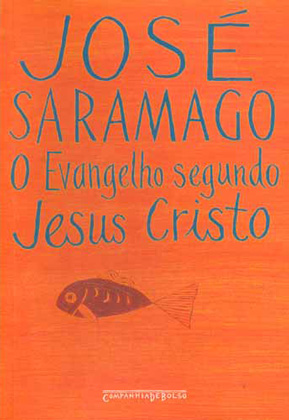Gospel
We are in the year zero. One day, Joseph and Mary of Nazareth are visited by a beggar who asks them food. When returning the bowl, the beggar announces to Mary that she is pregnant and gives her a strange light earth wishing that the child does not have the same fate as he. In “The Gospel according to Jesus Christ " is told the humanized life story of Jesus, son of Mary, that & ldquo; knows the love of the flesh and is recognized as a man”. This perspective of the humanization of Christ, distances itself largely on the traditional representation of the Gospel, demonstrating the fragility and vulnerability of Jesus, a man who does not understand the metamorphosis that is subject and flatly rejects it. It is the story of all Humanity that is at the mercy of the designs of God, against which can not fight whatever, and on behalf of which everything is permitted and justified to the most cruel and horrendous act. This adaptation is simply to transpose to an earthly dimension a man, who has been assigned a never asked nor wanted superhuman function, and what the consequences of this destination in his life and the world around him. This cinematographic work "The Gospel According to Jesus Christ", put aside the controversial issues that arose in the publication of the book by José Saramago and aspires to be the simple transposition to film one of the most beautiful narratives written in Portuguese.
Director's Note
What attracts me in this book is the idea of guilt, powerlessness and free will. Guilt as an existential psychological state. The impotence not only of Humanity in general but especially of Jesus towards a design that goes beyond him and that he did not want, and the inevitable way of how he will have to accept it. There is this Jesus a kind of adolescent refusal that gives way to a calm and dryness. A kind of passage to adulthood. And the free will as if handcuffed by the two previous ideas. This film intends to portray so at which point comes the human cruelty, whether in the name of power, money, relationships or a god. The grotesque in this film plays a key role, not in the lurid sense of the term, but in the sense of recognizing reality. It is simply to portray reality as it is, without subterfuge or condescension, pacifying us with that.
